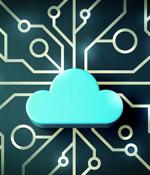Security News

"EU Agency for Cybersecurity Executive Director, Juhan Lepassaar, said:"The agreement ENISA signed with CERT-EU is a stepping-stone in utilising our synergies to the benefit of EU Member States and the EU Institutions, Agencies and Bodies. "Our structured cooperation comes at a time where the EU and its Member States need to strengthen their cybersecurity capabilities more than ever."

Elastic announced a new way for users to create, manage and monitor alerts and notifications across the Elastic Stack and external systems with a generally available alerting framework in Kibana. Built from the ground up after years of collaboration with customers using Elasticsearch to power mission-critical monitoring scenarios, the new alerting framework stems from a core belief that alerting itself is fundamental for all businesses.

Lunavi announces the launch of its new Azure Adoption Program aligned with the Microsoft Cloud Adoption Framework. The program helps enterprise customers rapidly transition from their current on-premise infrastructure to a secure Azure cloud environment that takes advantage of best practices in security, governance, and optimization.

Arista Networks announced a new zero trust security framework for today's digital enterprise. Arista Multi-Domain Macro-Segmentation Service is a suite of capabilities for integrating security policy with the network through an open and consistent network segmentation approach across network domains.

Versions of the popular developer tool Zend Framework and its successor Laminas Project can be abused by an attacker to execute remote code on PHP-based websites, if they are running web-based applications that are vulnerable to attack. Impacted is Zend Framework version 3.0.0 and Laminas Project laminas-http before 2.14.2, with an estimated "Several million websites" using the framework and possibly impacted.

An untrusted deserialization vulnerability has been disclosed this week in how Zend Framework can be exploited by attackers to achieve remote code execution on vulnerable PHP sites. "Zend Framework 3.0.0 has a deserialization vulnerability that can lead to remote code execution if the content is controllable, related to the destruct method of the ZendHttpResponseStream class in Stream.php," states MITRE's advisory for CVE-2021-3007.

Managing and securing AD and AAD with a dynamic zero trust approach is critical to success, and can help businesses improve their overall security posture to address the reality, as evidenced in other studies, that show 80 percent of breaches involve compromised or weak administrative credentials. "With 95 percent of global Fortune 1000 companies relying on Active Directory to manage their users' access, and the swift move toward Azure and cloud adoption, it becomes a natural starting point for businesses looking to implement a zero trust security model," said Bhagwat Swaroop, president and general manager, One Identity.

To help tech professionals get a stronger grasp on the important technology and how to leverage it within their own organizations, ISACA has released two new resources: Blockchain Framework and Guidance and Blockchain: An Executive View. Blockchain Framework and Guidance offers a comprehensive blockchain reference, including overview, history, information about types and their benefits and features, as well as use cases and a framework for enterprise adoption.

VMware unveiled the Modern Network framework to enable businesses, and their IT and application development teams, to accelerate adapting to a new normal. The Modern Network framework takes a top-down view, creating a network that understands the needs of the application and programmatically managing infrastructure to meet those needs.

McAfee announced the launch of MVISION Marketplace, MVISION API and MVISION Developer Portal, part of the MVISION platform that will allow customers to quickly and easily integrate McAfee and trusted Security Innovation Alliance partner applications as well as privately developed applications within their current security environment. The newly launched open API framework enables organizations to respond faster to threats while reducing total cost of operations by automating MVISION Platform capabilities and integrating with their IT and security operations.